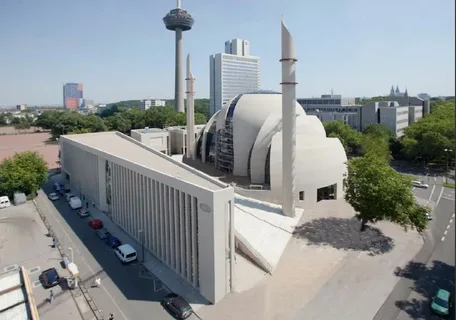Building a mosque in Germany involves a series of legal, regulatory, and social considerations. As Germany is a country that values religious freedom and diversity, constructing a mosque follows a structured process designed to ensure that all requirements are met and that the project contributes positively to the community. This article outlines the key conditions and considerations involved in building a mosque in Germany.
1. Legal and Regulatory Requirements
Building Permits:
The construction of a mosque, like any other building project in Germany, requires obtaining a building permit from the local municipal authority. This permit ensures that the proposed construction complies with zoning laws, building codes, and safety regulations. The application process typically involves submitting detailed architectural plans and adhering to local regulations regarding land use.
Zoning Laws:
Zoning laws in Germany dictate how land can be used within specific areas. When planning to build a mosque, the proposed location must be zoned appropriately for religious or community use. If the land is not already designated for such purposes, rezoning may be required, which involves a formal process that includes public consultations and approvals from local authorities.
Compliance with Local Regulations:
Mosque construction must comply with various local regulations, including those related to environmental impact, noise control, and aesthetic considerations. Municipalities may have specific requirements regarding the design and appearance of religious buildings to ensure they fit harmoniously with the surrounding environment.
2. Community and Social Considerations
Community Engagement:
Building a mosque often requires engaging with the local community to address any concerns or objections. This process can involve public meetings, discussions with local residents, and consultations with community leaders. Effective community engagement helps build support for the project and addresses any potential issues related to its impact on the neighborhood.
Interfaith Dialogue:
Interfaith dialogue can play a crucial role in the mosque-building process. Engaging with other religious and community groups fosters mutual understanding and respect. Positive relationships with neighboring communities can help alleviate concerns and facilitate smoother approval processes.
Cultural Sensitivity:
Understanding and addressing cultural sensitivities is important when building a mosque. Ensuring that the design and construction of the mosque respect local traditions and aesthetics can help mitigate potential opposition and integrate the mosque more seamlessly into the community.
3. Financial and Organizational Aspects
Funding and Financing:
Securing funding for the construction of a mosque involves gathering financial support from various sources, including donations from the local Muslim community, private investors, and potentially government grants or subsidies. Transparent financial planning and management are essential for the successful completion of the project.
Legal Structure and Ownership:
The mosque must be established as a legal entity, such as an association or foundation, in accordance with German law. This legal structure will manage the mosque’s operations, handle financial matters, and represent the mosque in legal and administrative contexts.
Building a mosque in Germany involves navigating a range of legal, regulatory, and social considerations. Securing the necessary building permits, complying with zoning laws, and addressing community and cultural concerns are crucial steps in the process. Engaging with local residents and other stakeholders, understanding the impact of the project, and managing financial and organizational aspects effectively contribute to the successful establishment of a mosque. By adhering to these conditions, developers can ensure that the mosque serves as a positive addition to the community and supports the country’s commitment to religious diversity and freedom.
